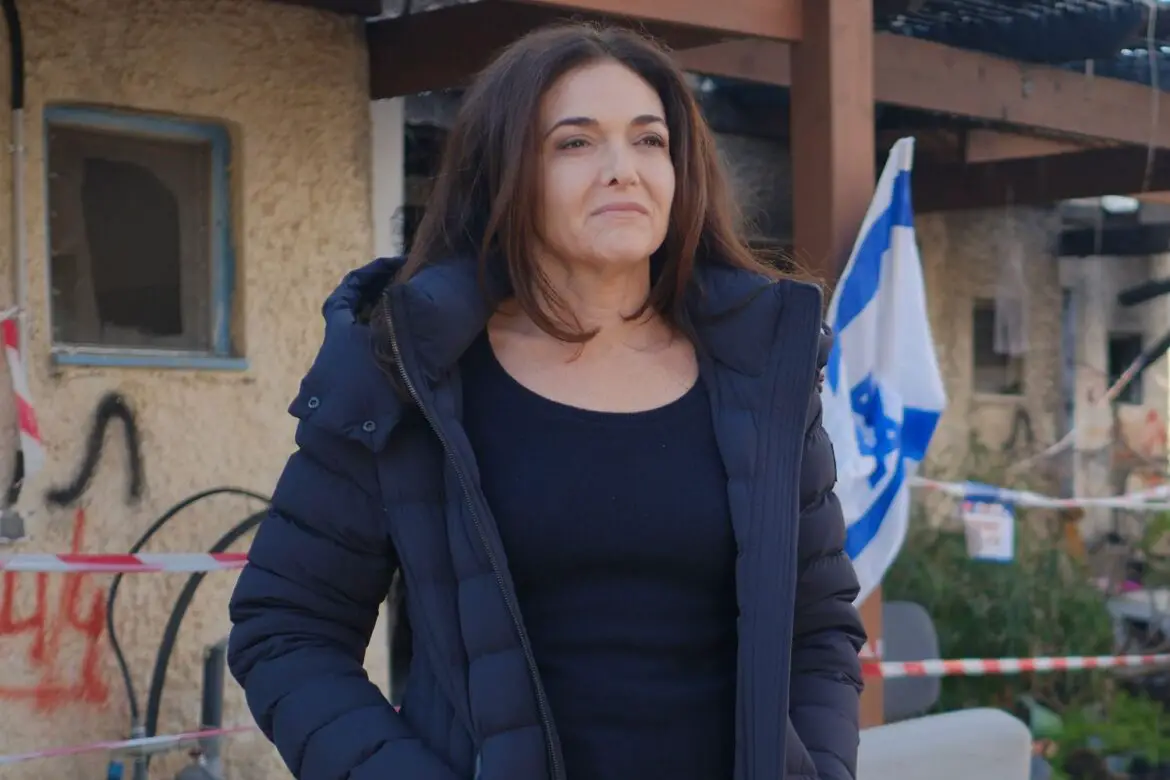On Oct. 7, Sheryl Sandberg awoke to an alert on her phone that left her reeling.
“I’m on a WhatsApp thread with my childhood girlfriends on the East Coast and I woke up to this popup that said, ‘Israel’s at war,’ ” recalls the 54-year-old former Facebook COO. “I couldn’t believe what I was seeing.”
In the hours that followed, accounts of butchery and mass death quickly proved even more shocking as Sandberg learned how Hamas terrorists had launched a surprise attack. The group killed 1,200 people, took more than 200 people hostage and sparked a war with Israel that has since left tens of thousands more dead, mostly in the territory of Gaza.
The brutality of Hamas’ assault — and particularly the stories of sexual assault — lit a fire inside Sandberg, who knew she had to do something.
“No matter what flag you fly, no matter what you’re marching for, no matter what you believe, rape is not acceptable as a tool of war,” she tells PEOPLE. “Full stop.”
Ran Mendelson
In late January, she flew to Israel and spent several days with a film crew getting first-hand accounts from survivors, freed hostages and first responders, along with legal, medical and forensic experts.
The result is the graphic, stomach-churning hourlong YouTube documentary Screams Before Silence.
“It’s very hard to watch, but this is a story that has to be told and believed,” Sandberg says. “It really is the most important work of my life.”
While Hamas has denied its fighters committed sexual violence as part of its incursion, and some individual accounts have been discredited, the U.N. has said there is “reasonable grounds” to believe rape and gang rape were committed and that there is “clear and convincing information” hostages were abused as well.
Sandberg spoke with PEOPLE about her documentary and her mission to give a voice to the women who were assaulted, taken hostage and murdered during the Oct. 7 attack.
Why create this documentary?
I had to do this. I wish this work wasn’t necessary, but I really feel like everything I’ve done in my life has led me to this moment where I could help bear witness. I’ve obviously been a businessperson and I’ve been a very outspoken feminist for a very long time. But I didn’t think in my lifetime, especially after #MeToo, that I would see such a lack of outrage at best or denial at worst of the sexual violence that occurred on Oct. 7. I can’t let that happen.
Ran Mendelson
Are you surprised about the response to the documentary?
We’ve been blown away by what’s happened. The film and trailer have been seen millions of times. It really surpasses what I thought would happen because I think there are people who want to see the truth.
What do you say to those people who are denying that the sexual assaults chronicled in your documentary actually happened?
There are people who say they aren’t sure [this happened], who ask, “Well, where are all the victims and why aren’t they speaking out?” The reason is because they were almost all killed. This documentary is the story of how so many women and men — how many, we may never know — spent the last moments of their lives. People need to see the facts here. And if they don’t fit their narrative, then they need to rethink that narrative.
Tell me what you’ve learned about the role mass rape and sexual violence plays in war?
One of the sexual violence experts I talked to said some chilling things about why rape is such a powerful tool in war. First, it destroys communities. Even when victims are left alive, they become survivors. Sometimes they’re carrying the babies of the terrorists who raped them. Think about how that changes their lives and their relationships with their husbands? They get rejected from society. It destroys communities. He described rape as an incredibly effective tool of war: It’s free. It’s not a rocket, and you don’t have to pay for it.
You’ve stayed in contact with some of these sexual assault survivors. Do you think it’s possible for them to ever heal from what they endured?
I’ve been told by people who are knowledgeable that they’re very afraid that some of the hostages are pregnant. One of the released hostages who lost her husband and daughter said to me that she has good days and bad days, but she’s unable to think about anything else other than the people who are still there, chained to beds and being sexually assaulted. It’s just horrible. She’s trying to heal. The whole nation is trying to heal.
Ran Mendelson
What’s your reaction to the events that have unfolded since Oct. 7?
Oct. 7 is shocking, of course, but what’s also shocking is what has happened since with these college protests with college kids screaming, “We are Hamas.” Really? I want a two-state solution where people can live in peace, but [protestors saying], “We are Hamas” or that the rapes didn’t happen is what has been truly shocking. [Some of the protest organizers have rebuked the antisemitic rhetoric.]
What do you want people to take away from this documentary?
People need to be honest about what happened on Oct 7. And if it doesn’t fit into your narrative, then rethink your narrative. We need to remain united no matter what else you think. We’ve got to be united against sexual assault. I think that really matters.
You’ve spent the past few months thinking deeply about sexual violence. What have you learned?
Rape goes to the heart of who we are. What’s interesting is that Hamas seems very proud of what they’ve done [in attacking Israel], reminding everyone that they’re going to keep coming back again and again. Yet they deny the rapes. In a world where they’re saying, “Yay, we killed Jews,” they are denying that the rapes happened. This can’t just be a women’s issue. It’s got to be an issue for all of us.
This interview has been edited and condensed for clarity.




